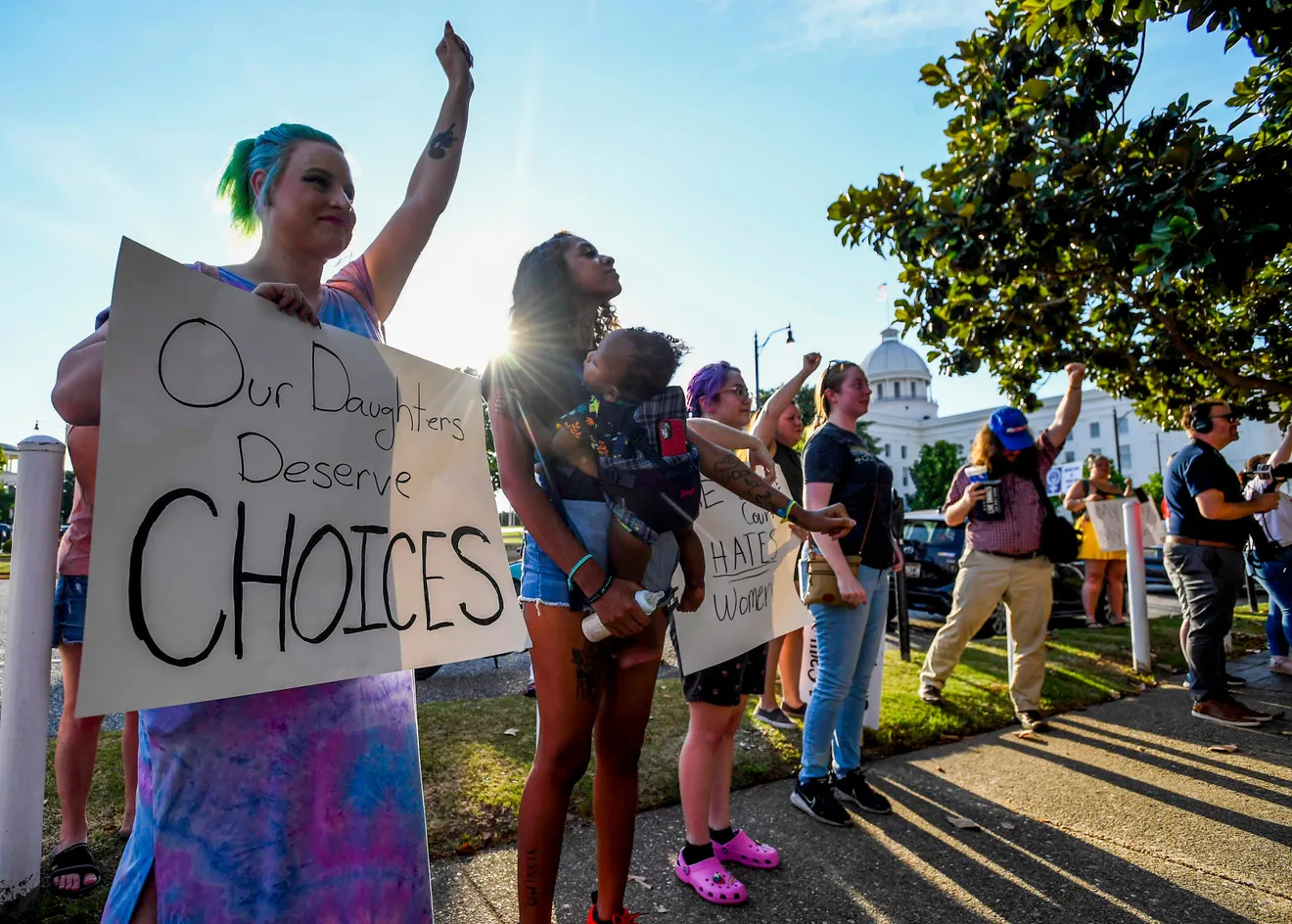In recent developments, Alabama has emerged as a focal point in the ongoing national debate over abortion rights. The state’s strict anti-abortion laws, coupled with recent attempts to prosecute individuals aiding women seeking abortions out of state, have sparked widespread concern and legal battles. This situation is now being closely watched as a potential test case for the future of abortion access across the United States, especially in states with more lenient laws.

Alabama’s Strict Abortion Laws
Alabama is known for having some of the most restrictive abortion laws in the country. In 2019, the state passed a near-total abortion ban, which criminalizes the procedure at any stage of pregnancy, except in cases where the mother’s life is in danger or if the fetus has a lethal anomaly. This law, among others in the state, has been challenged and temporarily blocked in federal court, but it underscores Alabama’s aggressive stance on abortion.
However, in the wake of the Supreme Court’s decision to overturn Roe v. Wade in 2022, states like Alabama have gained renewed momentum to enforce their stringent abortion laws. The state’s current legal framework effectively eliminates access to abortion within its borders, forcing women who seek the procedure to travel to states where it remains legal.
Criminalizing Out-of-State Abortion Assistance
What has drawn significant attention to Alabama recently is its move to potentially prosecute individuals and organizations that assist women in obtaining out-of-state abortions. This includes providing financial assistance, transportation, or other forms of support to women traveling to states where abortion is legal.
Alabama’s aggressive pursuit of such legal actions could set a precedent for other states with similar abortion restrictions. Legal experts and advocates worry that this could create a chilling effect, where people and organizations fear legal repercussions for simply helping women exercise their rights in states where abortion is still permitted.
The National Impact of Alabama’s Legal Battle
Alabama’s actions have far-reaching implications. If the state succeeds in prosecuting those who assist women in obtaining abortions out of state, it could embolden other states with restrictive abortion laws to follow suit. This would further complicate the already challenging landscape of abortion access in the United States, potentially isolating women in states with strict laws and leaving them with few options.
On the other hand, if Alabama’s efforts are blocked or overturned by higher courts, it could reinforce the legal protections for individuals and organizations supporting women’s access to abortion in states where it remains legal. The outcome of this legal battle will likely shape the strategies of both abortion opponents and supporters nationwide.
The Role of Abortion Advocacy Groups
Abortion advocacy groups have been quick to respond to Alabama’s actions. Organizations such as Planned Parenthood and the American Civil Liberties Union (ACLU) are mobilizing to challenge any attempts to prosecute those assisting women in obtaining out-of-state abortions. These groups argue that Alabama’s efforts violate constitutional rights, including the right to travel and the right to access legal medical procedures in other states.
Advocacy groups are also working to raise awareness about the potential consequences of Alabama’s legal actions. They warn that if Alabama is successful, it could lead to a patchwork of conflicting state laws, where the legality of assisting with abortion access varies drastically from one state to another.
The Human Impact
At the heart of this legal battle are the women who seek access to safe and legal abortions. For many women in Alabama, traveling out of state is the only option to obtain an abortion. However, this option is not accessible to everyone. The costs associated with travel, lodging, and the procedure itself can be prohibitive, particularly for low-income women.
Moreover, the fear of legal repercussions may deter individuals and organizations from offering much-needed assistance, leaving women isolated and without support. This could lead to dangerous outcomes, including attempts to self-manage abortions or carry pregnancies to term against their will.
Looking Ahead
As Alabama’s legal battles unfold, the nation watches closely. The state’s actions could redefine the boundaries of abortion access in America, with significant implications for both women and those who support them. The outcome will determine whether states can criminalize assistance with out-of-state abortions, and it may either fortify or erode the already fragile network of support for women seeking reproductive healthcare.
In conclusion, Alabama’s role as a test case in the national abortion debate could have a profound impact on the future of abortion rights and access in the United States. Whether this will lead to greater restrictions or reinforce protections for women’s reproductive rights remains to be seen.
For more in-depth analysis and updates on related topics, visit Digital Digest.






